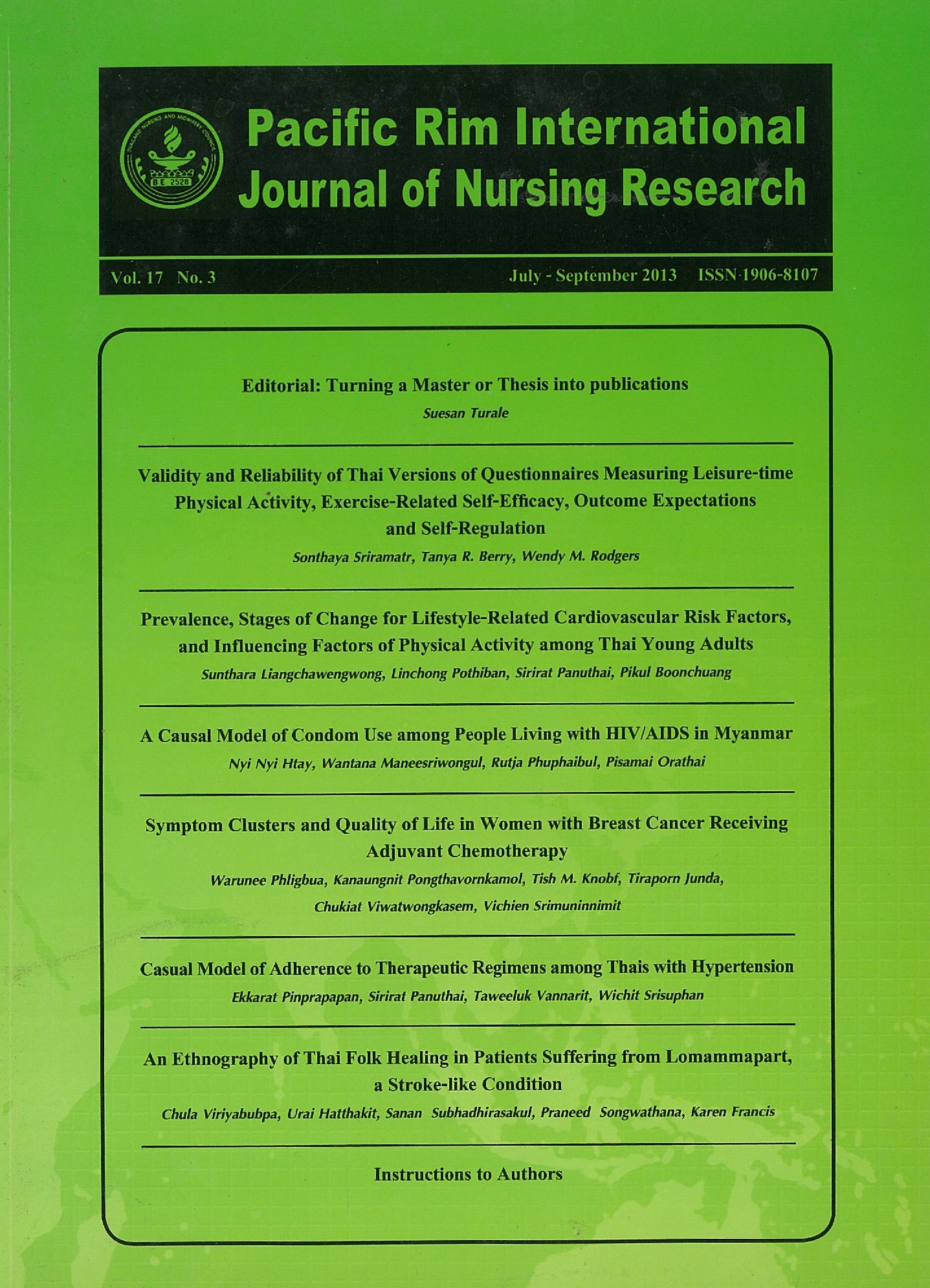Validity and Reliability of Thai Versions of Questionnaires Measuring Leisure-time Physical Activity, Exercise-Related Self-Efficacy, Outcome Expectations and Self-Regulation
Keywords:
Instrument, Exercise-Related Self-Efficacy, Leisure-time Physical Activity, Outcome Expectations and Self-RegulationAbstract
Abstract: This study examined the validity and reliability of Thai versions of questionnaires measuring leisure-time physical activity, exercise-related self-efficacy, outcome expectations and self-regulation. Three steps were used: translation, back-translation and expert committee confirmation; test-retest reliability; and exploratory factor analysis. Twenty-nine female bilingual Thai undergraduate students participated in the test-retest procedure, and 364 Thai female undergraduate students participated in the exploratory factor analysis. The Thai versions of the questionnaires have acceptable test-retest reliability, concurrent validity; construct validity, and internal consistency reliability. The questionnaires have suitable psychometric properties and can be used to assess their stated topics in Thai female
undergraduate students. These results also provide validation of these constructs in a non-North American sample. In this study we found that these valid and reliable measures of these constructs are useful for conducting research and interventions that target health behaviour changes in Thai population. Health practitioners such as nurses can use these constructs to try to effect changes in physical activity behaviour among Thai people, and future research on the use of these questionnaires is warranted.
Downloads
Published
How to Cite
Issue
Section
License
Copyright: The Pacific Rim International Journal of Nursing Research, Thailand Nursing & Midwifery Council has exclusive rights to publish, reproduce and distribute the manuscript and all contents therein.








.png)



